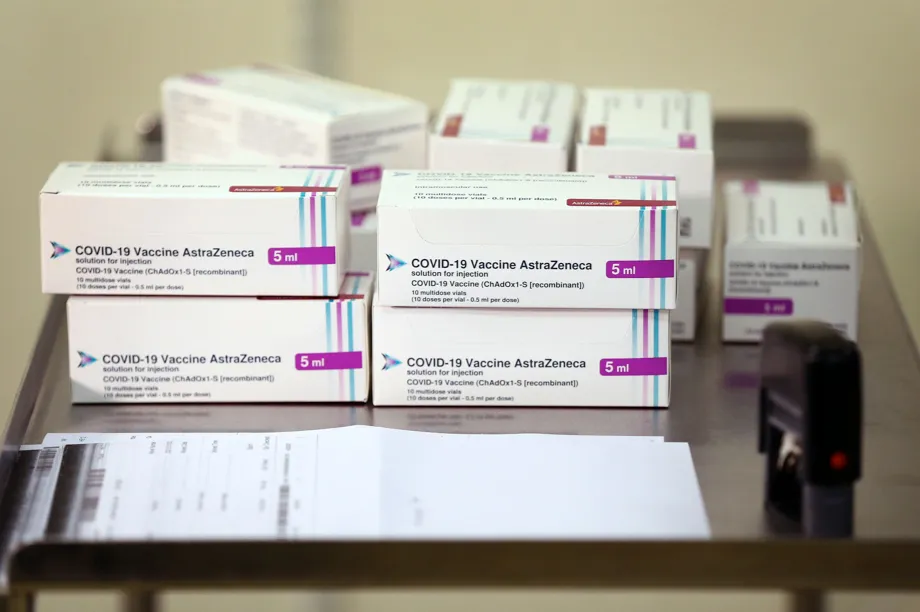The gut microbiome – the ecosystem of bacteria that live inside us – appears to be weakened in those that have visited hospital with COVID-19. New research, published in the journal Gut,suggests that microbiome health could be linked to the severity of the infection and persistence of long-term systems, though more work is needed to understand the exact nature of the relationship.
Although the coronavirus is considered to be a respiratory illness, the detection of the virus within patient’s faecal samples and the cells of the intestine have led scientists to believe that the gastrointestinal tract is somehow involved in this disease. Over the last decade, there has been mounting evidence that the community of microbes that live inside our digestive system plays a role in our overall wellbeing and health, and in particular our immune system function.
To further understand the relationship between the SARS-CoV-2 virus and the gut microbiome, researchers analysed stool samples from 100 patients with COVID-19 within two hospitals in Hong Kong. In order to discover more about long COVID and the gut, data from up to 30 days after recovery was included.
The team discovered that fewer of the gut bacteria known to influence the immune system’s response to infection were present in patients who had been admitted with COVID-19 than those who had been admitted for other conditions. Lower numbers of these species were particularly associated with the severity of a patient’s infection, and the numbers of these bacteria remained low in patients up to 30 days after recovery.
Read more about the gut microbiome:
- From microbiome to mental health: The second brain in your gut
- Medieval poo holds clues to health of modern-day gut microbiome
However, as this study was purely observational, the authors could not say for certain whether the virus has caused the changes, whether the gut microbiome determines COVID-19 severity, or whether the effect is purely correlation – just that a link has been found.
"We cannot discount the possibility that composition of the gut microbiota was a product of disease, clinical management and/or medication," said lead author of the study Professor Siew C Ng.
"However, the compositional signatures we observed including a trajectory from mild to severe disease and a depletion of beneficial bacteria with immunomodulatory potential suggest that the gut microbiota is likely involved in disease."

Before you go out and start eating microbiome-boosting foods – like kimchi, blue cheese or baked beans – to fend off COVID-19, experts urge caution.
"Until it can be clearly evidenced that changing the gut microbiome alters COVID-19 risk, it would not be appropriate to suggest measures to improve gut health would increase resilience to COVID-19," explains Dr Kaitlin Wade, an epidemiologist at the University of Bristol looking for links between gut health and illnesses such as cancer. “Much further and deeper research is required to understand this complex relationship and draw meaningful conclusions."
How could a virus affect the gut microbiome?
“The ecosystem of bacteria that lives in the human gut has been the topic of intensive study for more than a decade,” said Professor Willem van Schaik who researches the human microbiome and antibiotic resistant bacteria atthe University of Birmingham.
“While the gut microbiome is broadly stable in healthy individuals, its composition can change, sometimes dramatically, through dietary interventions, exposure to antibiotics and illness.”
Knowing this, the study's authors controlled for factors including antibiotic treatment and age. "After taking [these factors into] account, lower numbers of two types of bacteria — Faecalibacterium prausnitzii and Bifidobacterium bifidum – were still significantly associated with more severe COVID-19 symptoms," said Ng.
"We want to emphasise that the study does not have the power to discriminate whether changes were due to the virus itself or to the combination of factors."
How could the link between the gut and coronavirus lead to long COVID?
The team believes that the continued microbiome imbalance observed in their study could contribute to long COVID symptoms seen in some people after they recover from infection with SARS-CoV-2. “We speculate that the lack of these beneficial species could contribute to multi-system inflammation syndromes after viral clearance," said Ng.
“It is a reasonable hypothesis that an abnormal population of microorganisms in the gut could contribute to autoinflammatory and autoimmune disorders occurring during the infection, or appearing later during long COVID,” said Prof Graham Rook, emeritus professor of medical microbiology at University College London.
However, Rook advises that any variations seen in the composition of the gut’s microbiome could be secondary to the disease. “[It could even be] thepsychological stress caused by hospitalisation for COVID-19 will cause changes to the microbiota,” said Rook.
“My guess is that the hypothesis will be shown to be correct, and that it will prove to be one of the reasons for the disproportionate susceptibility of individuals of low socioeconomic status, who for numerous reasons, particularly bad diet, have suboptimal microbiotas."
What could this mean for treatment of COVID-19?
“It would be exciting if transfer of microbiota from appropriate donors could be used to treat long COVID, but more definitive studies will be needed," said Rook.
This is exactly what Ng and her team plan to look at next. "[We] are now investigating if replacing these apparently beneficial bacteria could improve a person’s response to SARS-CoV-2 infection and perhaps shorten their recovery time," said Ng.
"We are also conducting clinical trials to determine the effectiveness of an oral microbiome immunity formula in reducing severity and preventing lingering symptoms. Our other target populations are high risk individuals such as people with chronic diseases, as they seem to have worse outcome when infected."
The findings also have potential for further research into coronavirus vaccines. "We will also be conducting studies to determine how changes in gut microbiota would influence vaccine response," said Ng.
